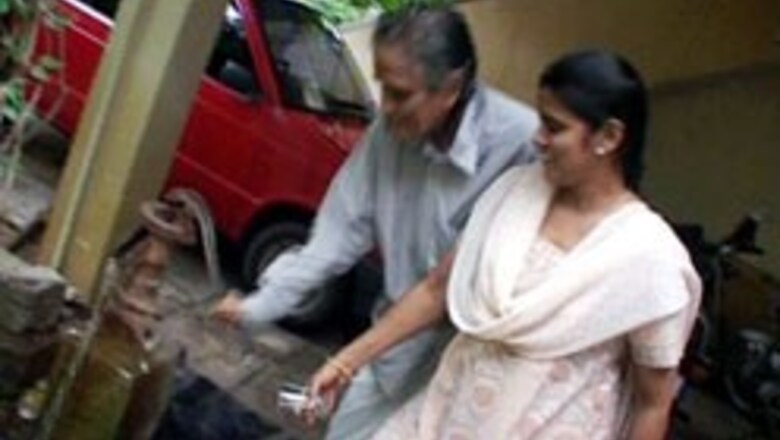
views
New Delhi: A CNN-IBN and Consumer Voice special investigation reveals that the water supplied by municipalities in metro cities is unfit for human consumption.
However, there is little that the consumers can do because there is no law that guarantees the right to clean drinking water.
There are only guidelines and no mandatory standards which could enable citizens to hold the Government responsible for the quality of the drinking water.
Srinivasan Raghavan, a resident of T Nagar in Chennai, uses the municipal water supply for drinking. But he does not trust the quality of the water.
"We used to collect water in the vessel and put alum in the night. Next day morning, we would have filtered water. Then, it was filtered again before we consume it," says Raghavan.
But though many residents like Raghavan know that the drinking water is contaminated, there is little they can do against the municipality.
"The biggest problem that this country has today is that you and I do not have a legal right to clean water. There are no standards for what would be defined as portable water, which is clean water," says Director for Centre for Science and Environment (CSE), Sunita Narain.
"This means that suppose you did find pollution, if you get your water tested and you go to the municipality and say I found arsenic in it, or I found lead or cadmium in it, then there is no legal recourse you can have because as a citizen of India, you do not have a legal right to clean water," she adds.
Many residents in Mumbai and Delhi have similar complaints. "Often pipes are broken and the drinking water gets mixed with sewage water. This is mainly due to seepage. It gets very muddy and yellowness is present," says U V Kinny, a resident of Mumbai.
Director of Hazards Centre, Dunu Roy, explains, "Most people think that at least we are getting the water. The problem of scarcity is so huge, that they don't think so much about quality. Many a times, they do not know how severely the water is contaminated."
Studies show that ground water, which many consumers are forced to use, is no better and contains chemical toxins like arsenic.
While expensive purifying devices can reduce microbial pollutants, they cannot handle chemicals. Clearly there are many questions to be answered.
Narain of the CSE says there are more than one issue that needs to be addressed: "What is it that we can do we need to do to make sure that water is okay in areas with a short supply? What do we do in areas where water is often contaminated with sewage because the pipeline is so old? What can we do to make sure that the system can work at all?"
It is surprising that despite the four major metros earning over Rs 2,000 crore as tax for drinking water, the consumer has no legal right to a glass of clean water.
(For more details on the investigation, log on to www.consumer-voice.org)




















Comments
0 comment